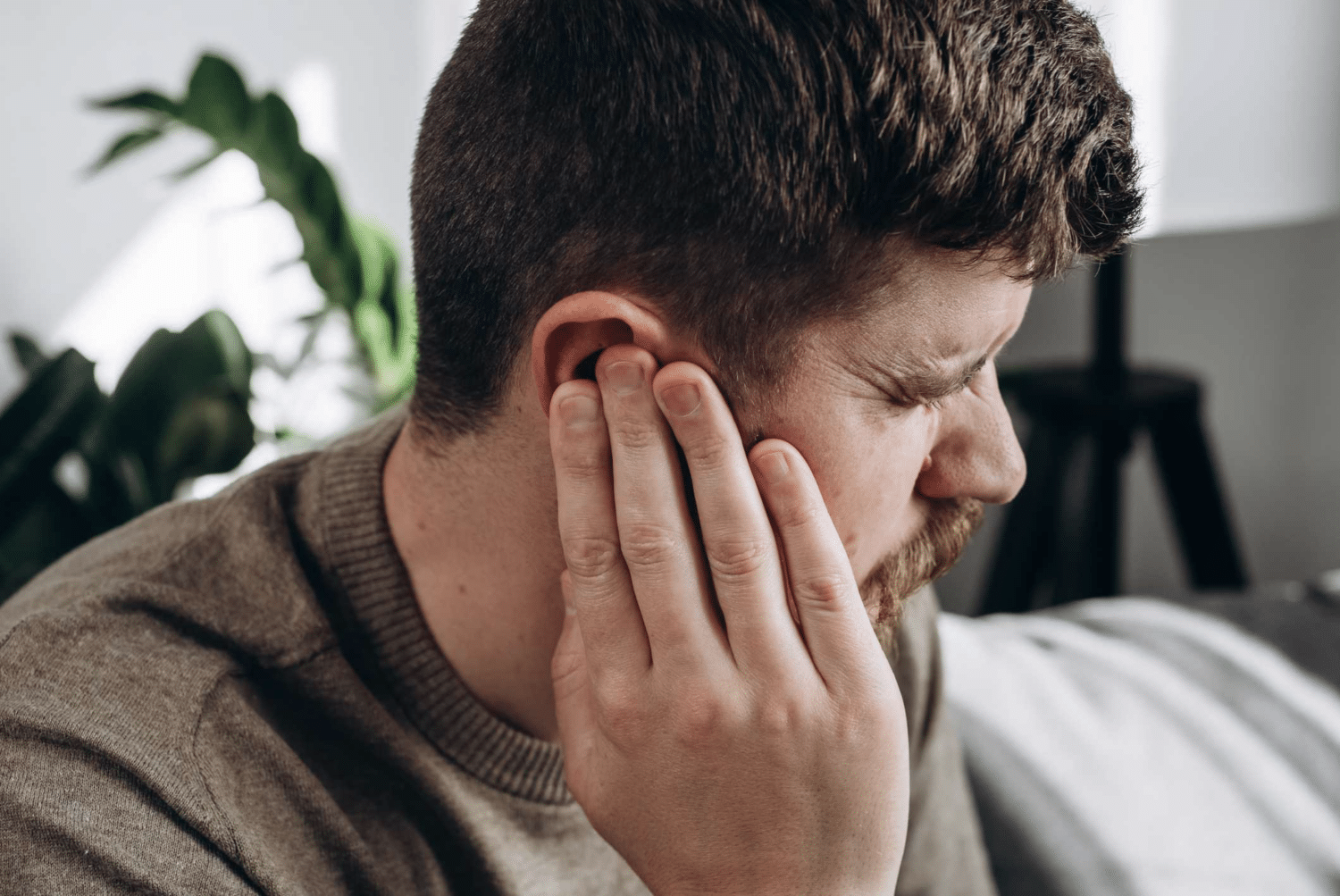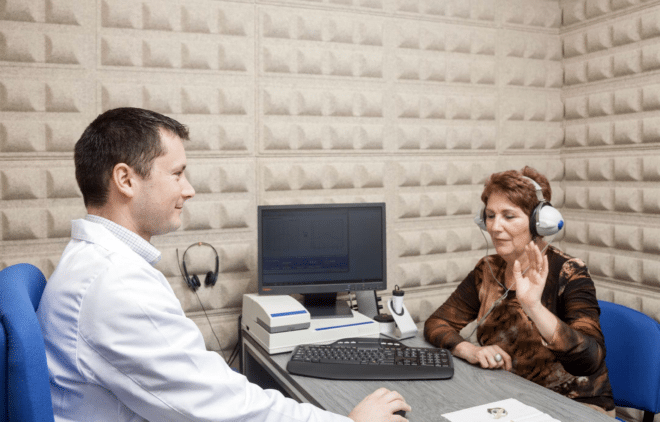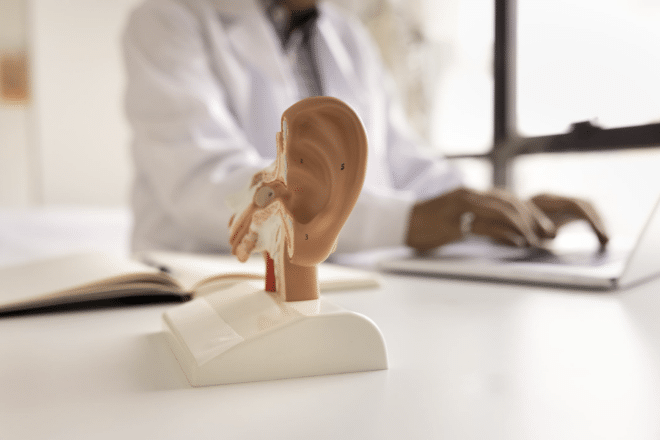Find Quick Relief – Best Remedies to Treat an Ear Infection
Dealing with the discomfort of an ear infection can be a distressing experience. For individuals with busy schedules or those who cannot immediately reach a healthcare professional, quick, effective home remedies can help.
Whether you’re facing a mild earache or a full-blown infection, this guide can help you find relief. We’ll walk you through a variety of home strategies that have been shown to provide comfort and, in some cases, address the underlying issue. Let’s explore some soothing at-home treatments for earaches and ear infections.
How Ear Infections Emerge
An ear infection is the result of a bacterial or viral attack in the middle ear, often accompanied by symptoms such as ear pain, fluid drainage from the ear, hearing loss, and more. The most common type of ear infection is acute otitis media, which typically affects children, although adults aren’t immune. Various causes, including colds, flu, allergies, and smoking, can lead to an ear infection. Earwax buildups, tonsillitis, dental problems, and teeth grinding can also cause an earache to emerge.
If you’re struggling with debilitating ear pain, below are various ways you can use to counteract the problem and make the pain go away. These home remedies aren’t cures but can significantly alleviate discomfort while the body’s immune system takes care of the infection. They are best employed as a short-term solution, and persistent ear issues should merit a visit to a healthcare professional.
1. Compresses for Comfort
Soothing with temperature and applying a warm compress against the infected ear can ease the pain by improving blood circulation and reducing inflammation. In contrast, a cold compress can reduce swelling and numb discomfort. For a warm compress, soak a cloth in warm water, wring, and place on the affected ear for relief. For cold therapy, wrap ice in cloth and apply in 5-10 minute intervals. Alternating between warm and cold may offer enhanced comfort, helping to manage the symptoms until professional care is sought.
2. Over-the-Counter Pain Relievers
OTC pain relievers, such as ibuprofen (Advil, Motrin), acetaminophen (Tylenol), or naproxen (Aleve), can be effective in managing the pain of an ear infection. These medications are also anti-inflammatory, meaning they can reduce swelling in the ear canal. Always follow the recommended dose and safety guidelines, especially when taking medication for a child’s ear infection.
3. Naturopathic Drops
Naturopathic ear drops may offer a gentle yet effective approach for those seeking an alternative means of comfort. These drops often contain a blend of ingredients like mullein and St. John’s Wort – herbal extracts known for their soothing properties.
When utilized as directed, these drops can provide a soothing effect, helping to reduce the sensation of pain in the ear. While they aren’t a substitute for professional medical treatment, many find them to be a beneficial addition to their home care routine for earaches.
4. Garlic Oil Drops
Garlic has natural antibiotic properties, and using garlic oil drops can have a positive effect on ear infections. It is believed that garlic oil can kill the bacteria or virus causing the infection. To create these drops, crush a few garlic cloves and mix the juice with a warm, non-irritating oil, such as olive oil. When the oil has partially cooled, apply a few drops to the affected ear while lying on your side.
5. Tea Tree Oil
Tea tree oil is another natural remedy that exhibits antibacterial and antifungal properties. A few drops of diluted tea tree oil (mixed with a carrier oil such as coconut oil or olive oil) may help combat infections when applied gently around the outside of the ear canal. Remember to never insert essential oils directly into the ear canal.
6. Olive Oil
Olive oil is a kitchen staple and a potential home remedy that can bring comfort when dealing with earaches. Its soothing properties may help soften earwax, potentially reducing pain associated with blockages. A few warmed drops placed gently into the ear canal can serve as a lubricant, creating a calming effect and mitigating some discomfort while waiting to visit a hearing care center.
7. Ginger
Ginger, a root heralded for its anti-inflammatory properties, might offer solace to those with ear pain. Applying the juice from freshly grated ginger around the outer ear canal can soothe discomfort, thanks to its natural pain-relieving qualities. It should not be placed directly into the ear. While most evidence of ginger’s effectiveness is anecdotal, many people find its application a welcome, non-invasive addition to their at-home care arsenal.
8. Apple Cider Vinegar
Apple cider vinegar can help restore the natural balance of the ear canal by adjusting the pH levels, which can deter the growth of bacteria. Mix one part of apple cider vinegar with one part of water and apply a few drops into the ear, then lie down with the affected ear facing up for a few minutes. Afterward, drain and pat dry.
9. Hydrogen Peroxide
Hydrogen peroxide is commonly utilized for its effervescing action that helps remove earwax and debris from the ear canal. This method can alleviate the pressure and discomfort associated with earaches. Place a few drops into the ear, wait until the bubbling subsides, then tilt your head to let it drain out.
When You Should Seek Medical Attention
While home remedies can be effective in treating mild earaches, there are instances where professional advice is necessary. Seek immediate medical help if you or your child:
- Is experiencing high fever, severe pain, or heavy discharge from the ear
- Experiences symptoms such as hearing loss
- Has a compromised immune system or chronic health conditions
- Is under six months of age with signs of ear infection
If any of these red flags appear, it’s crucial to contact a professional audiologist or otolaryngologist (ENT specialist) at the nearest hearing care center or medical facility.
Treat Ear Infections with the Utmost Care
An ear infection is not to be taken lightly. While home remedies can offer a reprieve from the immediate discomfort, ensuring the infection is properly diagnosed and treated is necessary to prevent complications. There is no substitute for expert medical advice, and we encourage anyone suffering from ear pain or infection to seek prompt, professional attention.
Hearing Health Connection has several hearing care centers that offer assessments and treatments for ear-related concerns for those living in Pennsylvania. Your hearing health and overall wellness are invaluable – taking the right steps today can impact your quality of life tomorrow.



